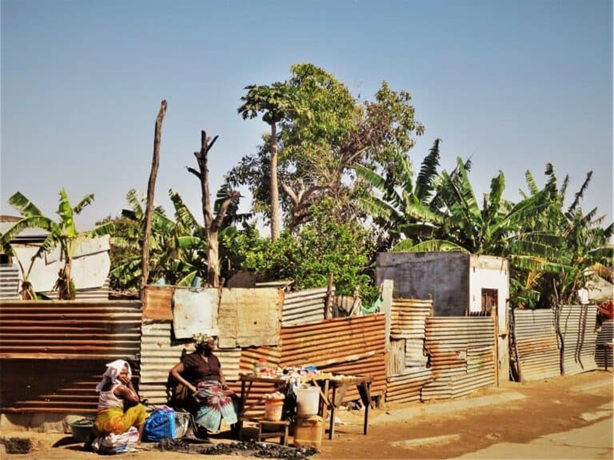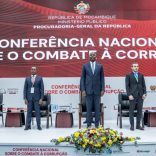Indian Navy’s First Training Squadron arrives at Maputo port, Mozambique
Mozambique: CREMOD is about to be dismantled without any report made public- Carta

File photo: Centro de Integridade Pública - CIP
The Commission for Reflection on the Decentralized Governance Model (CREMOD) was created in July, 2023, by the government of Filipe Jacinto Nyusi to discuss the appropriate decentralized governance model for the country, after Frelimo made it impossible to hold district elections in 2024. Its days are numbered – now at less than 110.
Created by Resolution No. 21/2023 of July 17, CREMOD replaced the CRED (Commission for Reflection on the Relevance of Holding District Elections), which had been established in March, 2023, by the Nyusi government with the aim of postponing the district elections.
In 15 days, the aforementioned Commission concluded that there were neither political nor financial conditions for Mozambique to hold its first district elections, which were scheduled for 2024.
READ: Commission on District Elections’ document defends postponement | Mozambique
District Elections: Postponement opinion reflects the whole country’s opinion – govt
In turn, CREMOD, made up of 23 individuals, three of whom are members of the government, has a two-year mandate, which ends next July. The members of CREMOD are the Minister for Justice and Constitutional Affairs, who acts as the group’s coordinator; the Minister responsible for Local Administration; and the Minister responsible for Economy and Finance.
The group also includes Aguiar Mazula, Lourenço Do Rosário, Jamisse Taímo, Ericino de Salema, Augusto Paulino, Joaquim Veríssimo, Albino Forquilha, Américo Ubisse, Benigna Zimba, Dorinda Eduardo, Francisco de Sousa, Hipólito Patrício, Ismael Nhacucué, Ismael Mussá, Latino Ligonha, Mahomed Osman, Saíde Habibe, Saimone Macuiana, Sarifa Fagilde, and Virgínia Videira.
READ: Mozambique wants to study decentralisation models from other countries – Watch
According to article 9 of the resolution that created CREMOD, the Commission must present a progress report to the government quarterly, and at the end of its term of office, it must present a final report with its main findings and recommendations.
However, seven quarters after its creation (two in 2023; four in 2024; and one in 2025), not even a single public quarterly report has been released by CREMOD, an entity that operates thanks to the money of Mozambican taxpayers. So far, it is known that it has submitted three reports to the government, which keeps them under lock and key.
This fact worries lawyer Ivan Maússe, from the Centre for Public Integrity (CIP), who believes that CREMOD should have published at least the progress reports submitted to the government.
“Ideally, these reports should be made public, so that they can be scrutinised by interested parties (…), in order to assess the main findings that CREMOD reached based on the public consultations it carried out,” argues the lawyer, stressing that CREMOD’s work involved the participation of civil society and scholars “who lent their knowledge”.
For Maússe, opening up the debate on the results of the CREMOD consultations would allow for better harmonization, consensus building and consolidation of the document, since “it is possible that solutions that are not consensual will be approved”. “What will happen is that we will arrive in July with a document that is not consensual, that will present several problems and whose implementation may be frustrated,” he stresses.
With the creation of the Technical Committee for the materialization of the Political Commitment for an Inclusive National Dialogue, questions arise about the importance of CREMOD, as the aforementioned team will have to discuss, among other topics, matters of decentralization, one of the biggest “Achilles heels” of governance in Mozambique.
For the researcher, it is necessary that, in matters concerning decentralization, the Technical Committee does not start from scratch, but takes up the studies already developed by academics and civil society organizations on the subject.
“If we are going to set up a [new] working group to discuss the issue of decentralisation, it seems to discount all the work that had been developed by CREMOD, unless this committee is going to be forced to establish this bridge with the work already developed by CREMOD,” he stresses.














Leave a Reply
Be the First to Comment!
You must be logged in to post a comment.
You must be logged in to post a comment.